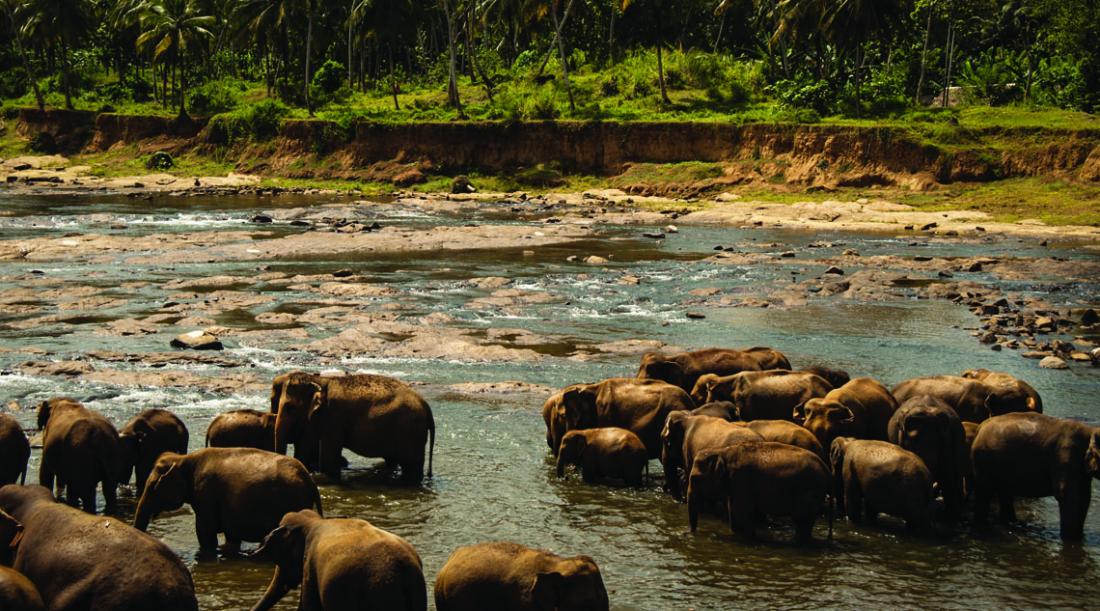Sri Lanka is a global biodiversity hotspot with many forms of wildlife found nowhere else on the planet. Unique subspecies such as the Sri Lankan leopard and the largest Asian elephant are an important tourist draw for a country finding its feet after decades of civil war.
While wildlife enriches daily life, strengthens ecosystems and attracts visitors, it can also damage crops and carry disease. Densely populated and rapidly changing places such as Sri Lanka – where human settlements, domestic animals and wildlife mingle closely – need effective ways to manage these benefits and risks. Recent epidemics have shown the critical role that wildlife health monitoring can play. But like many low- and middle-income countries, Sri Lanka lacks the needed infrastructure and expertise.
Since 2011, Sri Lanka has had its own national wildlife health centre, co-managed by three government agencies and the University of Peradeniya, and mentored by the Canadian Wildlife Health Cooperative. With support from Canada’s International Development Research Centre, a four-year collaboration between the University of Peradeniya and the University of Saskatchewan now aims to build the expertise needed for a national program of research and surveillance to help detect and manage health issues linked to interactions between wildlife and humans.
Research co-leader Dr Ted Leighton stresses the need to go beyond cataloguing wildlife and disease. “The human and social dimensions of managing health issues at the human-wildlife interface are severely neglected,” he says. “Finding pathogens is relatively easy. The key is knowing how to communicate, educate and motivate risk-reducing behavioural change in human communities at risk.”
In a first phase of the research, the team identified six study sites where local communities live near protected areas. The sites represent a range of wildlife habitats and agro-ecological conditions. Researchers worked with villagers – including indigenous Adivasi or Vedda communities – to explore their beliefs, perceptions and contact with wild animals and to identify related conflicts or health risks. These explorations showed that, while some misconceptions exist, villagers are quite knowledgeable about the risks of transmittable diseases such as rabies, leptospirosis and Japanese encephalitis. Some villages raised concerns that merit further investigation, such as abnormal jackal behaviour and cases of anaemic sambar deer.
The chief aim, however, is to build a critical mass of Sri Lankan scientists able to bridge animal and human health and development. According to Dr Oswin Perera, director of the Sri Lanka Wildlife Health Centre, “The project is making an important contribution to training, capacity building and networking among staff and students from the university and government agencies.”
Graduate students in veterinary and social sciences are taking part in the research and gaining expertise in areas such as veterinary pathology, epidemiology and community dynamics. Government officials and field staff from the wildlife, veterinary, human health and administrative sectors are helping to set project priorities, taking part in research and incorporating their new capacity in wildlife health into their programs. While building expertise in Sri Lanka, the joint effort is developing organisational models and training and evaluation tools for wildlife health research that may help other countries grappling with emerging diseases and increasing land use conflicts.
For further information contact:
Dr Oswin Perera
Sri Lanka Wildlife Health Centre
E-mail: [email protected]
Dr Ted Leighton
University of Saskatchewan, Canada
E-mail: [email protected]
International Development Research Centre, Canada
E-mail: [email protected]



